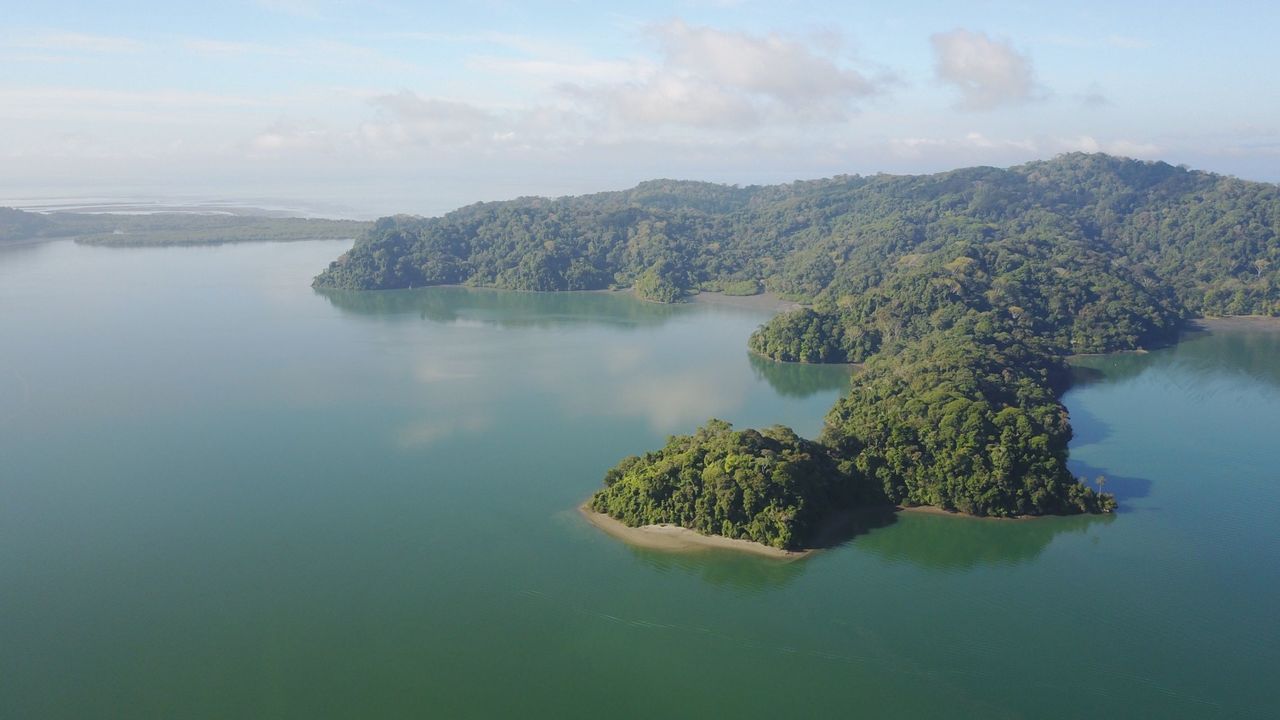
Legislative Approval for Land Exchange in Golfito Amid Legal Concerns
33 lawmakers approve a public-private land exchange project in Golfito, despite warnings from the Attorney General's Office regarding legal and constitutional implications.
On Thursday, a legislative project aimed at authorizing the exchange of public lands in Golfito for private lands was approved in its first debate by 33 votes in favor and 9 against.
The initiative, known as PERMUTA, faced significant opposition largely centered around concerns expressed by the Procuraduría General de la República (PGR).
The legislative file, numbered 23.062, seeks to remove two parcels of state-owned land from public domain status in exchange for privately-held lands located further inland.
Proponents claim that this land exchange will facilitate the development of a tourist complex intended to enhance the attractiveness of Costa Rica's South Pacific region for maritime tourism and related activities.
The public lands currently serve essential functions for the operation of the railways and the port in Golfito, leading the PGR to caution that the proposed removal from public use status is unwarranted.
The PGR's position emphasizes that public lands should not be alienated without clear technical assessments establishing that they hold no current or potential utility for public transport services, including the port and railway operations.
Support for the project included votes from various legislative members, whereas opposition came primarily from representatives of the Frente Amplio party, alongside dissent from other independent legislators.
The plan was initially presented by former lawmakers Carmen Chan, Erwen Masís, and Gustavo Viales.
As part of the proposed trade, the state would transfer ownership of coastal properties to several private firms, including Banco Improsa S. A., The Sound of Ocean S. A., Inversiones Marina Golfito S. A., and Sunset Shots S. A. In return, the state would receive lands further inland, one of which houses the port authority of Golfito.
The PGR has reiterated that land can only be classified for deregulation if it is technically determined by legal authorities that it does not serve the original public interests of the railway and port.
This ongoing assessment has deemed that the necessary criteria for land exchange are currently unmet.
Before the legislative vote, concerns were raised by Ariel Robles, a member of the Frente Amplio, who indicated intentions to challenge the initiative through the Constitutional Chamber to ascertain if legal shortcomings exist in the proposal.
The PGR has also highlighted that constitutional protections over ports extend beyond just the areas used for loading and unloading but also encompass the entirety of the associated properties.
The initiative, known as PERMUTA, faced significant opposition largely centered around concerns expressed by the Procuraduría General de la República (PGR).
The legislative file, numbered 23.062, seeks to remove two parcels of state-owned land from public domain status in exchange for privately-held lands located further inland.
Proponents claim that this land exchange will facilitate the development of a tourist complex intended to enhance the attractiveness of Costa Rica's South Pacific region for maritime tourism and related activities.
The public lands currently serve essential functions for the operation of the railways and the port in Golfito, leading the PGR to caution that the proposed removal from public use status is unwarranted.
The PGR's position emphasizes that public lands should not be alienated without clear technical assessments establishing that they hold no current or potential utility for public transport services, including the port and railway operations.
Support for the project included votes from various legislative members, whereas opposition came primarily from representatives of the Frente Amplio party, alongside dissent from other independent legislators.
The plan was initially presented by former lawmakers Carmen Chan, Erwen Masís, and Gustavo Viales.
As part of the proposed trade, the state would transfer ownership of coastal properties to several private firms, including Banco Improsa S. A., The Sound of Ocean S. A., Inversiones Marina Golfito S. A., and Sunset Shots S. A. In return, the state would receive lands further inland, one of which houses the port authority of Golfito.
The PGR has reiterated that land can only be classified for deregulation if it is technically determined by legal authorities that it does not serve the original public interests of the railway and port.
This ongoing assessment has deemed that the necessary criteria for land exchange are currently unmet.
Before the legislative vote, concerns were raised by Ariel Robles, a member of the Frente Amplio, who indicated intentions to challenge the initiative through the Constitutional Chamber to ascertain if legal shortcomings exist in the proposal.
The PGR has also highlighted that constitutional protections over ports extend beyond just the areas used for loading and unloading but also encompass the entirety of the associated properties.










